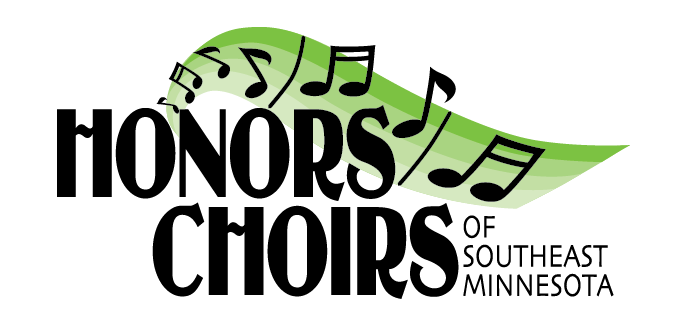Joining Honors Choirs
If you have a passion for music and find joy in singing, Honors Choirs is the place for you! Honors Choirs performance choirs are open to children in grades 3-12. Previous choir experience is not necessarily required to be successful in Honors Choirs. Many of our singers play piano, or participate in band and orchestra. Most of our younger singers begin with very little vocal experience. Whatever your experience, we are very happy you are interested in singing!
Children in grades 1 and 2 are welcome to enroll in Half Notes, a non-auditioned music education experience designed to provide a foundation in basic vocal technique and music theory. Please see link below for Half Notes registration information.
Audition Process
Membership in Honors Choirs is by audition. Prior to the start of each season, all singers (current & new) in grades 3-12 audition for a spot in an ensemble. Auditions take place in May & June for the season that begins in September. Late summer auditions are offered if there are openings in choirs. December auditions for the second half of the season may also be offered as space permits.
STEP ONE: Read "Everything You Need to Know" (click below) to learn what is expected of all Honors Choirs singers. Make sure you are able to commit to the program should you be accepted into a choir.
STEP TWO: Request an audition by clicking below and submitting the audition form. Once registered, you will receive notification of audition dates and times when the schedule opens. You may register anytime and we will keep your information until the next audition opportunity.
STEP THREE: Once you are assigned an audition date and time, you can start preparing for your audition! The audition process varies depending upon your age, and we will provide all the details with your audition information.
What to Expect at the Audition
The audition process is fairly brief and simple. During your audition you will meet with the conductor of the choir for your age group. Depending upon your age, the audition will focus on skills like rhythm, matching pitch, reading notes, sight reading music and so forth. You may also be asked to sing a piece of your choosing. Younger singers can choose something as simple as "Twinkle Twinkle Little Star" or a song from school, church, etc. A music theory assessment is given to older singers.
Scholarships
Honors Choirs provides financial assistance to help with tuition costs for singers who would not otherwise be able to participate in the program. Applications should be submitted by the end of July for awards prior to the beginning of the season. Applications are also accepted throughout the season should the need arise, or if a singer joins after July. Both scholarships are need-based.
Myatt Helmers Tuition Scholarship is awarded to singers demonstrating financial need.
Diversity Scholarship Award is for singers of ethnic minority background demonstrating financial need. It is a single-season scholarship offered to singers their first year with Honors Choirs.
Music Theory Resources
https://www.classicsforkids.com/
Includes user friendly games (e.g. rhythm, note names, musical terms), a dictionary of musical terms, teaching activities, and brief explanations of key teaching approaches.
http://www.musiclearningcommunity.com/freegames.html
Kid-friendly music learning games.
http://www.sfskids.org/
Games and activities hosted by the San Francisco Symphony.
https://www.musictheory.net/
Music theory exercises, including note, interval, and chord identification and construction.
https://www.8notes.com/theory/
Music theory lessons, listening exercises, and glossary of musical terms.
https://trainer.thetamusic.com/
Online ear training and music theory exercises, as well as discussion of musical concepts and approaches.
https://www.good-ear.com/index.html
Online ear training exercises.
https://oneminutemusiclesson.com/lessons/
Music theory lessons provided in short video clips as well as in written form.
http://teoria.com/
Music theory tutorials with listening examples, music theory and ear training exercises, and select articles on musical issues and concepts.
https://www.musical-u.com/learn/
Introductory explanations of key music concepts as well as exercises, articles and video resources on these topics.
http://www.tonalcentre.org/index.html
Written discussion of music theory concepts, including scales, chords, and modulation.
http://www.practicalmusictheorybook.com/
Written discussion of music theory concepts, from pitch notation and intervals to chord construction, plus practical exercises. Based on Brian Dunbar’s book Practical Music Theory: A Guide to Music as Art, Language and Life (Factum Musicae, 2015).
Education Opportunities
Singing with Honors Choirs is a great way to become a better vocal musician, and there are many things that a motivated singer can do to enhance that experience and his/her skills:
Sing in your school and/or church choir.
Play an instrument.
Take private vocal and/or instrument lessons.
A terrific listing of instructors is available through Rochester Music Guild
Enroll in a summer music class.
Attend a summer music camp.



